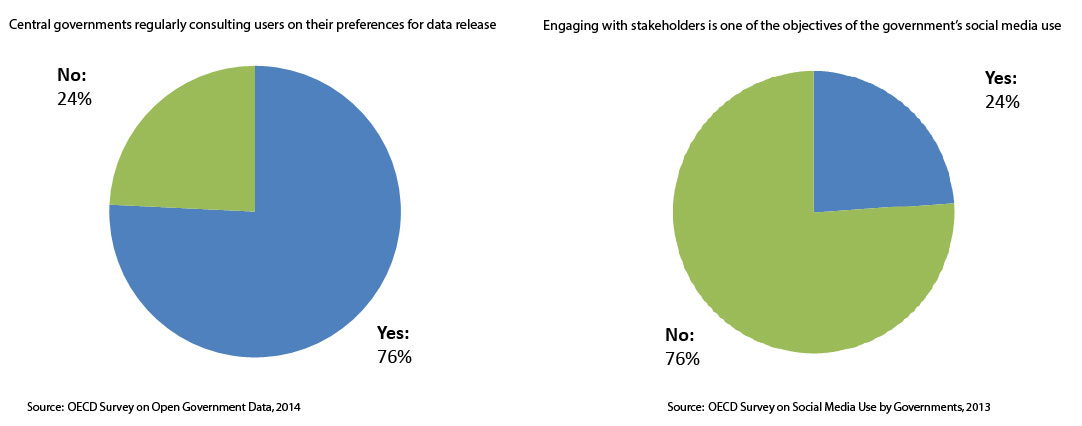Principle 2
Engagement and participation in policy making and service delivery
Key Issues
|
 |
Overview
To navigate today’s complex policy environment, Governments need to work with institutional and non-institutional actors to find comprehensive solutions to outstanding problems.
ICTs provide new opportunities for governments to:
- Cooperate with public, private and civil society stakeholders Create public value through inclusive and more informed policy-making processes
- Foster user-centred and user-driven service design and delivery
Governments are progressively confronted with the need to address issues concerning:
- Citizen empowerment
- Organisation and resource allocation
- Adoption of new rules and standards that empower citizens
- Create more inclusive decision-making processes and government operations
- Development of institutional capacities to take up these new opportunities
This principle helps governments to:
- Create inclusive governance models
- Better understand citizens’ evolving needs
- Leverage information, ideas and resources held outside the public sector
- Lower costs and administrative burdens
- Improve policy outcomes
- Foster user-driven service design and delivery
Data

Good practices
canada
Principle 2 - Open Government Licence (Open Data Canada)
Principle 2 - Strategic Software Developer Engagement
colombia
Principle 2 - Urna de Cristal
Principle 2 - E-Government Innovation Center
finland
Principle 2 - Open Data Programme
italy
Overall - 3 Year ICT Plan
latvia
Principle 2 - Social e-petition platform My Voice
Principle 2 - Open Referendum Initiation System
mexico
Principle 2 - National One-Stop Portal
Principle 2 - National Digital Strategy
Principle 2 - Digital Inclusion and Literacy Pilot Program
portugal
Principle 2 - Digital Mobile Key
Principle 2 - Citizen’s Portal
russia
Principle 2 - Information System of State Services Quality Monitoring ("Your Control")
slovenia
Principle 2 - State Portal for e-services for citizens - eUprava (eGovernment)
switzerland
Principle 2 - Development of the E-Government Strategy
new zealand
Principles 2 - Better Public Service Programme – Result 10
Principles 2 - Better Public Services Programme – Result 9

